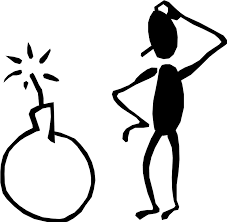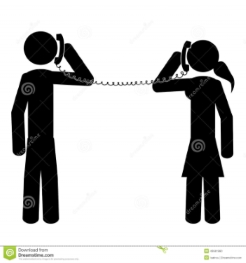| layout | title |
|---|---|
page |
Phrases & Introduction to Verbs |
Now that you've mastered pronunciation, here are some basic phrases and words to get you started! Be aware that everything here is simplified and not much is explained, but if you keep coming back to here, everything will start to click.
| Magyar | English |
|---|---|
| Jó reggelt (kívánok) | Good morning |
| Jó napot (kívánok) | Good day |
| Jó estét (kívánok) | Good evening |
| Jó éjszakát | Good night |
| Jó étvágyat | Bon Appetit |
| Szép napot | Have a nice day |
| Neked is* (to one person) | to you as well |
| Nektek is* (to many) | to you as well |
| Helló/Szia/Szevasz (to one person) | Hi/Hey/Bye |
| Helló/Sziasztok/Szevasztok (to many) | Hi/Hey/Bye |
| Viszlát/Visontlátásra | Goodbye |
| Hogy vagy? (to one person) | How are you? |
| Hogy vagytok? (to many) | How are you? |
| Igen | Yes |
| Nem | No/Not |
| Talán | Maybe |
| (Nem) tudom | I (don't) know |
| (Nem) értem | I (don't) understand |
| Köszönöm/köszi (szépen) | Thank you (very much) |
| Szívesen | You're welcome |
| Nincs mit | Don't mention it |
| Kérem | Please |
| Bocsánat | Sorry |
| Elnézést | Excuse me |
| Mennyibe kerül ez? | How much is this? |
| Hol van a mosdó? | Where is the toilet? |
| Hány óra van? / Mennyi az idő? | What's the time? |
| Segítség! | Help! |
| Tűz! / Tűz van! | Fire! / There's a fire! |
| Beszélsz angolul? | Do you speak English? |
| Igen, csak egy kicsit* | Yes, only a little |
| Ez | This |
| Az | That |
| És | And |
| Ma | Today |
| Holnap | Tomorrow |
| Tegnap | Yesterday |
Neked/nektek isare responses to thoses phrases beginning withjóorszép.Igen, csak egy kicsitis a reponse tobeszélsz angolul/magyarul?
- Hát, ez nem jó!
Well this isn't good!
Van is the verb for existence. Naturally, it is an irregular verb, but one of the most important as well.
| Pronoun | Past | Present | Future |
|---|---|---|---|
| én (I) | voltam | vagyok | leszek |
| te (you) | voltál | vagy | leszel |
| ő (3rd. person) | volt | lesz | |
| mi (we) | voltunk | vagyunk | leszünk |
| ti (you pl.) | voltatok | vagytok | lesztek |
| ők (they) | voltak | lesznek |
én, te, ő are singular, and mi, ti, ők are their respective plurals. These pronouns aren't used except for emphasis or describing a third person.
Hungarian does not distinguish between he or she, ő is used to describe both.
You may have noticed that the third person present tenses have been omitted, this is because they are only used for stating the existence of a thing/things, this will be elaborated upon in the next section.
Using the verb van, you can describe people.
| Magyar | English |
|---|---|
| Diák vagyok / Magas vagyok | I am a student / I am tall |
| Tanár vagy? / Ki vagy? | Are you a teacher? / Who are you? |
| Ő István / Ő énekes | He is István / He is a singer |
| Sportolók vagyunk / Hol vagyunk? | We are athletes / Where are we? |
| Ügyesek vagytok / Kik vagytok? | You (pl.) are clever / Who are you (pl.)? |
| Ők színészek / Ők híresek | They are actors / They are famous |
There are two things to notice here:
- When stating someone's occupation, we don't need to say a.
- Plural adjectives are used to describe groups of people.
- János vagyok, ki vagy?
I'm János, who are you?
In Hungarian, verbs are described using the 3rd person singular form (he/she runs, he/she jumps), instead of the infinitive (to run, to jump). Thus, if you want to look up a verb in a dictionary for example SZTAKI then you use the 3rd person singular.
Below are some examples of regular verbs, that have the same regular conjugation but with different vowel harmony.
Örül - (He/she/it is happy) Front-vowel (type 1)
| Pronoun | Past | Present | Future |
|---|---|---|---|
| én | örültem | örülök | fogok örülni |
| te | örültél | örülsz | fogsz örülni |
| ő | örült | örül | fog örülni |
| mi | örültünk | örülünk | fogunk örülni |
| ti | örültetek | örültök | fogtok örülni |
| ők | örültek | örülnek | fognak örülni |
Felkel - (He/she/it rises or gets up) Front-vowel (type 2)
| Pronoun | Past | Present | Future |
|---|---|---|---|
| én | felkeltem | felkelek | fogok felkelni |
| te | felkeltél | felkelsz | fogsz felkelni |
| ő | felkelt | felkel | fog felkelni |
| mi | felkeltünk | felkelünk | fogunk felkelni |
| ti | felkeltetek | felkeltek | fogtok felkelni |
| ők | felkeltek | felkelnek | fognak felkelni |
Note the different times that felkeltek is used, when talking it will be clear from context if ti or ők is being talked about.
Also, just because the future tense is structured like this in the table, doesn't always mean it sounds the most natural. E.g. örülni fogoksounds better than fogok örülni.
Sír - (He/she/it cries) (back-vowel conjugation due to í being the only vowel)
| Pronoun | Past | Present | Future |
|---|---|---|---|
| én | sírtam | sírok | fogok sírni |
| te | sírtál | sírsz | fogsz sírni |
| ő | sírt | sír | fog sírni |
| mi | sírtunk | sírunk | fogunk sírni |
| ti | sírtatok | sírtok | fogtok sírni |
| ők | sírtak | sírnak | fognak sírni |
Keep track of the similarities and differences. Strictly speaking there is no future tense in Hungarian, the auxiliary verb fog is used with the verb in infinitive form alongside it.
Just like how fog is used with the infinitive verb to express the future, we can use a time-reference and the present tense to do it as well.
- Majd készülök menni Londonba. - (I will be getting ready to go to London sometime later.)
- Holnap találkozunk. - (We are meeting tomorrow.)
- Otthon megnézem. - (I'll watch it at home.)
- Vasárnap a piacra megyek. - (I'm going to the markets on Sunday.)
- Pénteken a városba megyek. - (I'm going into the city on Friday.)
And naturally the other timestamps work with the past-tense.
- Másnap reggel, nem volt ott semmi! - (The next morning there was nothing there!)
- Mit csináltál tegnap? - (What did you do yesterday?)
- Telihold volt a minap éjszaka. - (There was a full moon the other night.)
- Nemrég otthon voltam karácsonyra. - (I was at home recently for Christmas.)
There are other verbs that end with sibilant endings s, sz, z, zs. Because of this, some of the conjugation is changed.
Lesz (he/she/it becomes) front-vowel
| Pronoun | Past | Present |
|---|---|---|
| én | lettem | leszek |
| te | lettél | leszel |
| ő | lett | lesz |
| mi | lettünk | leszünk |
| ti | lettetek | lesztek |
| ők | lettek | lesznek |
- És hol leszel holnap?
And where will you be tomorrow?
Lesz is the verb used as the future of van, so they are closely related.
Notice how it says leszel and not lessz, vowel harmony chips in to make it sound nicer.
Stay tuned for more verbs in upcoming sections!
Naturally because phrases have been introduced, the list will be long, but eventually these will all be covered.
-k,-twhich mark the plural and accusative-nak,-nekwhich marks the dative casehány,mennyiused for counting- several pronouns were mentioned
- The use of
nemandnincsfor negation - The use of
-bewhich is a locative - The use of
fel-which is a coverb used to add directionality. - The use of
meg-, a telicity marker


